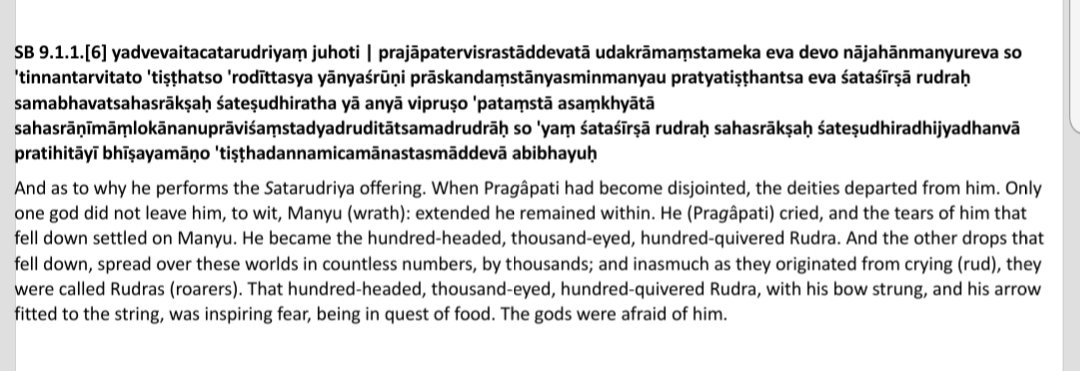Caution: This write-up is for those with an open mind. If you have an iron-clad presumption reg Veda, kindly stop reading to avoid your beliefs being contradicted (& blaming me). I respect all traditions while adhering to mine.+
#Vedas #Hinduism #SanatanaDharma #Vedic
Due to lack of space, I am not reproducing sanskrit text here so kindly refer to this link for the sanskrit text of SB Kanda 9- gretil.sub.uni-goettingen.de/gretil/1_sansk… +
#Hinduism #Vedas #Hindus #Vedic #Sanatani
I will be quoting from that. Perhaps keep all the links open in separate tabs.+
#Hinduism #Mahabharata #Vedas #Vedic
#Vedas

#Vedas
“Crying” is a metaphor for attachments or rajo-guṇa.+
#Vedas
#Hinduism #SanatanaDharma #Vedas
#Hinduism #Vedas #Hindus #Vedic #YajurVeda #SanatanaDharma
#Hinduism
#Hinduism #Vedas #Mahabharata #Sanatani #SanatanDharm #SanatanaDharma #Vedic
#Vedas
#Vedas
#Vedas
Mbh also says Rudra (on behalf of all) appealed to Brahmā́: prajā sarga nimittaṃ me kāryavattām imāṃ prabho….+
#Vedas #Mahabharata
#Hinduism #Vedas #Mahabharata
#Vedas
#Vedas
#Hinduism #Vedas #SanatanaDharma #Hindus
srutvā tu vacanaṃ devaḥ sthānor niyatavāṅmanaḥ tejas tat svaṃ nijagrāha punar evāntar ātmanā
“Hearing Sthānu, Brahmā, of restrained speech (senses) & mind, himself restrained the fire (of passion) in his mind.”+
#Hinduism
#Hinduism
#Vedas #Hinduism #SanatanaDharma
#Vedas
#Hinduism #Vedas #Hindus #SanatanaDharma #SanatanDharm #Sanatani
#Hinduism #Vedas #Hindus #Vedic #Sanatani #SanatanaDharma #SanatanDharm #Vedanta
#Hinduism #Vedas #Hindus #Vedic #Sanatani #SanatanaDharma #SanatanDharm
#Vedas
#Hinduism #Vedas #Hindus #SanatanaDharma #SanatanDharm
#Vedas
#Hinduism #Vedas #Hindus #Vedic #Sanatani #SanatanDharm #SanatanaDharma
Why is 1st anuvāka special? It was explained in the mantra previous to this one, 9.1.1.14 as below+
#Vedas
#Vedas
#Hinduism #Vedas #Hindus #SanatanaDharma
#Vedas
#Vedas
Thank you for reading//
#Vedas


